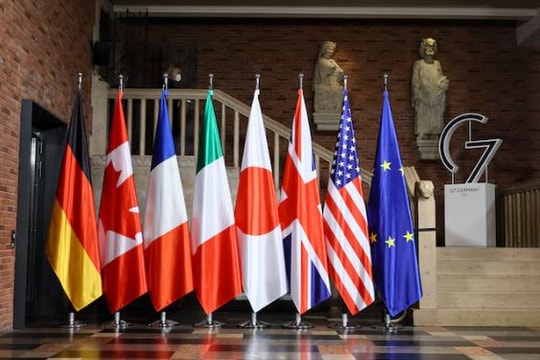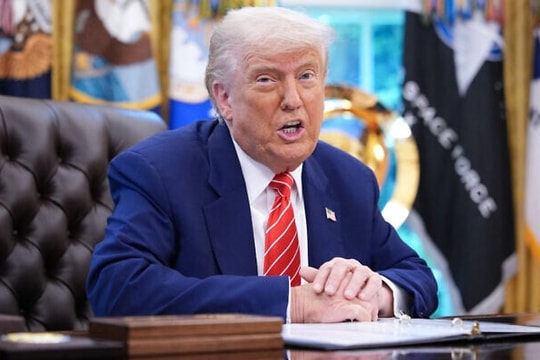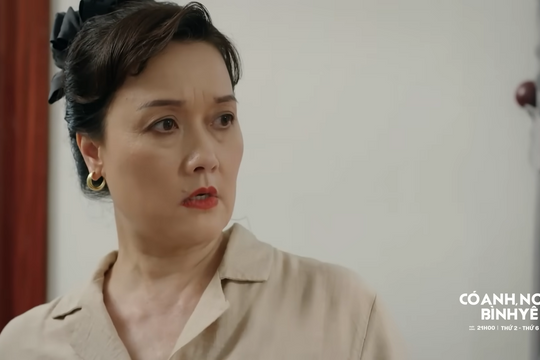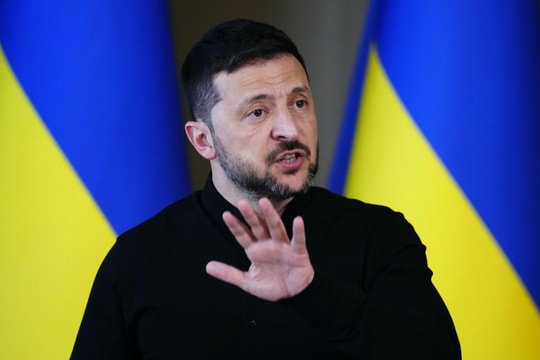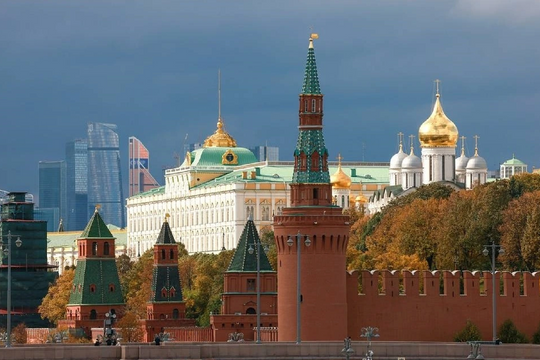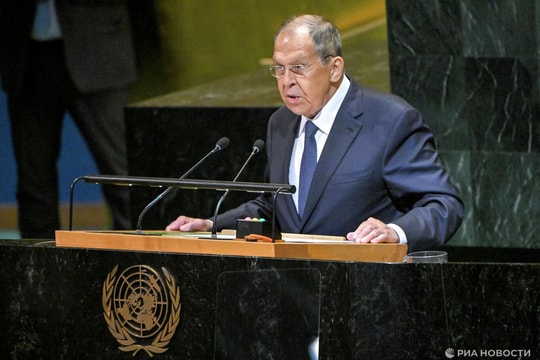The West has a headache with Russia's intention to use nuclear weapons.
Throughout 2022 and early 2023, Russia has frequently hinted at the possibility of using nuclear weapons to protect national interests - which has left Western scholars scratching their heads trying to analyze Russia's true intentions and outline response scenarios.
The Putin administration has repeatedly signaled in 2022 that the conflict in Ukraine could lead Russia to resort to nuclear weapons. The frequency of such signals decreased in late 2022, but in 2023, such hints continued to increase.
In late February, former Russian President Medvedev declared that the world faced the risk of apocalypse if the West continued to supply Ukraine with modern weapons.
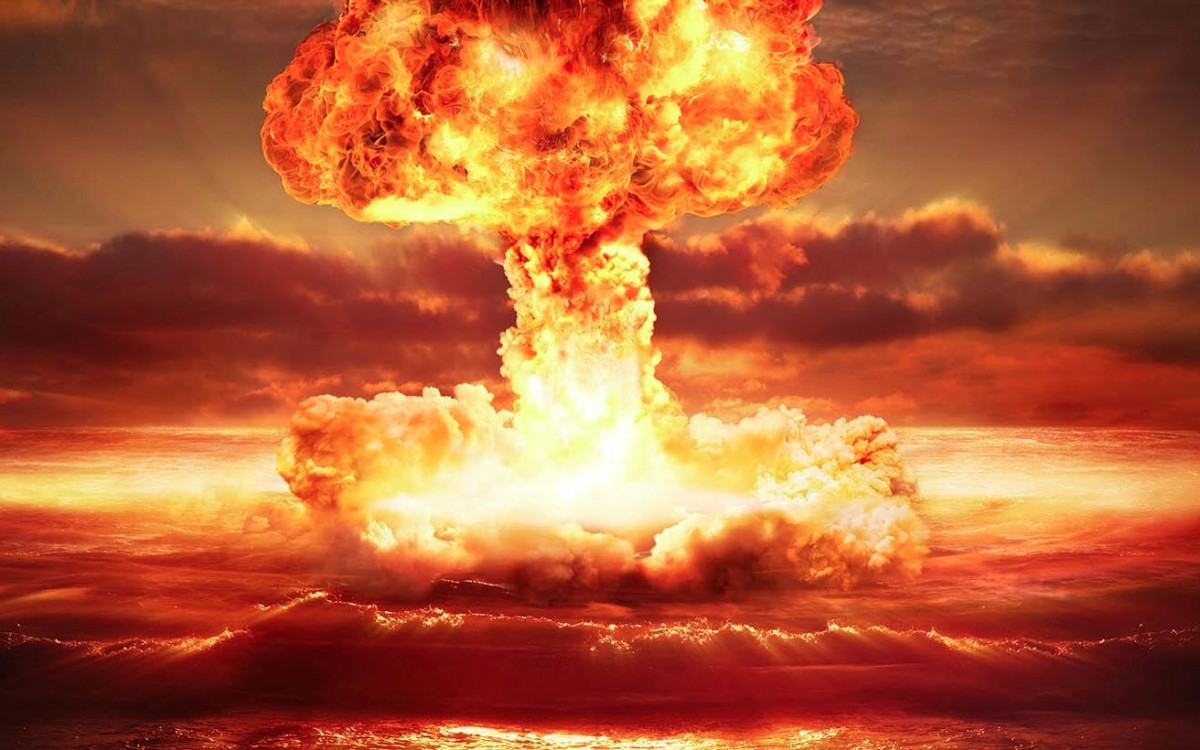 |
Illustration of a nuclear bomb explosion. Source: Ready.gov. |
Russia reinterprets the issue of survival
Scholars at the Heritage Foundation (USA) believe that Russia's threat to use nuclear weapons is mainly a tactic to confuse certain Western subjects, and thereby weaken the link between Ukraine and its Western allies. Western scholars believe that Russia is still inclined to use only conventional weapons, and that Russia's reminders of nuclear weapons are only intended to divide the West internally.
However, this group of scholars is not sure whether Russia will rule out the use of nuclear weapons. They have thought about various scenarios in Russia's internal situation as well as in its relations with the outside world that would force Russia to use weapons of mass destruction.
Russia possesses an arsenal of 2,000 tactical nuclear weapons. In Russia’s latest nuclear doctrine, there are four circumstances that justify the use of nuclear weapons: 1- The (imminent) possibility of another country using nuclear weapons against Russia; 2- The enemy has used nuclear weapons against Russia; 3- The threat of preventing Russia from controlling its nuclear arsenal; and 4- The threat to Russia’s survival.
The Russian leadership is now reinterpreting the concept of threat.
First, at a recent conference, Russian President Putin said that Russia could use weapons of mass destruction to “defend its sovereignty, territorial integrity and ensure the safety of its people.” This is a new and broader development of the idea that nuclear weapons could be used if Russia faced a serious existential threat.
Second, President Putin and his team have cast the Ukraine conflict in existential terms: If NATO “occupies” Ukraine, then Russia will follow. NATO’s goal, in the Kremlin’s view, is to disintegrate Russia. Thus, losing Ukraine is an existential threat to Russia, which, according to Russian military doctrine, is the basis for Russia to use nuclear weapons. According to this logic, Russia must fight NATO in Ukraine, or else it will have to fight NATO on Russian soil.
More broadly, Russia believes it is in a global struggle with the West—a struggle that is politically cultural, linguistic, and territorial. The Kremlin believes the West is waging proxy wars, not in Africa and Asia as during the Cold War, but in Ukraine and other Russian neighbors, as well as online, to win the hearts and minds of Russian citizens. Russian doctrine makes it clear that the Russian state is in deep conflict with the West.
Western orientation and response to Russian doctrine
First, the West tried to educate its people about what it called the threat posed by Russian nuclear weapons. After the Cold War, the West “neglected” this, but now it is stepping up again.
Second, the United States and its allies seek to improve their ability to detect and track radiation in the event of a nuclear weapon being used, a conventional attack on a nuclear facility, or an accident at a nuclear power plant located in an area of military activity.
Third, the US government (backed by Britain and France) could deploy a range of options to persuade Russia to avoid talking about and using nuclear weapons. It would also have to find ways to minimize the catastrophic consequences of Russia actually deploying nuclear weapons on the ground.
The first solution proposed by Western scholars is that they need to create deterrence through a strong collective response, based on conventional weapons, to prevent Russia from using tactical nuclear weapons.
The second concrete measure the West has in mind is to ensure that Russia’s potential allies in both the third world and the developed world will remind Moscow not to use nuclear weapons. The main actors the West is targeting here are China and India, followed by France and Germany.
The third measure considered by the West is to build a comprehensive monitoring system to prepare for the situation of a nuclear attack or an accidental or intentional civilian nuclear contamination incident.
The West will focus on countries in Eastern Europe and Scandinavia, cooperating with them on how to detect and monitor radiation levels. In addition, this detection system will be set up across Europe and linked to national governments. In the event of increased nuclear weapons use, the system can be expanded to a global level.
Regarding this third measure, Western scholars believe that the West must also prepare medical warehouses (stockpile potassium iodide to treat radioactive contamination) and ensure the supply of personal protective equipment.
The fourth measure is to proactively and actively maintain open communication channels with Russia in all situations./.

